OST-WoS database
One of the main ways in which research results are disseminated is in scientific journals and conference proceedings. Bibliographic databases contain information describing the source publications (journal, authors, affiliations, country), their scientific content (title, keywords, abstract, etc.) and their links with other publications (bibliographic references or citations).
To produce its bibliometric analyses, the OST uses the Web of Science (WoS) database from Clarivate Analytics, which it supplements with additional data (geographic, institutional, etc.). WoS is one of the main databases used in bibliometrics: it lists the scientific journals and conference proceedings that are the most influential internationally. They are selected on the basis both of their editorial qualities and their use by peers, as measured by citations. WoS is more representative in areas that are genuinely internationalised than in applied or “field” areas of study, or in those with a strong national tradition. It is therefore less representative for certain areas of engineering sciences, the humanities and social sciences. The coverage of the database does continue to evolve, however, and new journals are included in it each year.
The classification into eleven fields of science in the OST database is the result of the aggregation of the research areas established by Clarivate Analytics. These fields are:
- Applied Biology-Ecology,
- Fundamental Biology,
- Chemistry,
- Computer Science,
- Mathematics,
- Physics,
- Medical Research,
- Astro and Earth Sciences,
- Humanities,
- Engineering Sciences,
- Social Sciences.
The journals may be associated with several research areas and therefore with several fields of science. Articles in journals associated with more than one field of science (Nature, PNAS US and Science, in particular) are attributed between the different fields of science according to their subject matter.
Only certain documents are taken into account to calculate the indicators: original articles (including those from conference proceedings), reviews and letters. Those documents for which part of the information is missing (the country, for example) are not taken into account.



